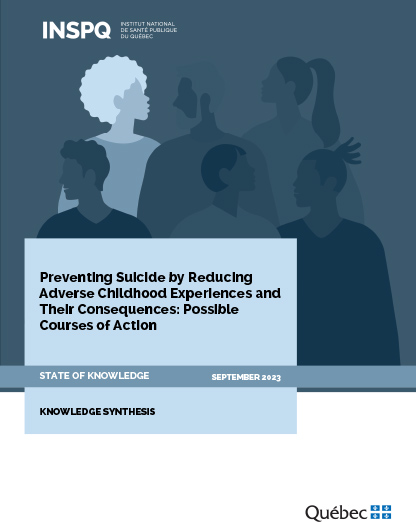Preventing Suicide by Reducing Adverse Childhood Experiences and Their Consequences: Possible Courses of Action
Adverse childhood experiences in families (e.g. physical violence, sexual violence, exposure to domestic violence, parent with a mental health issues) are one of the factors that increase the risk of suicide. This synthesis of eight literature reviews analyzes the characteristics and effectiveness of interventions implemented outside clinical settings in reducing adverse childhood experiences and their consequences. It also discusses the results obtained regarding suicide prevention. Prior to examining the interventions, the synthesis presents a conceptual framework explaining the mechanisms by which adverse childhood experiences affect suicide risk. This has revealed that:
- Three interrelated mechanisms, namely, neurobiological, psychological and relational disruptions, explain the impact of adverse childhood experiences on mental and physical health and lifelong suicide risk. The consequences of these experiences are likely to induce psychological suffering, which can be a warning sign for suicide.
- The interventions identified in this synthesis are associated with the positive effects of reducing adverse childhood experiences or their consequences. They fall into five categories:
- Interventions to reduce poverty, which act on the occurrence of adverse experiences and some of their consequences;
- Interventions to promote access to community-based prevention services, which are associated with reducing the consequences of adverse experiences;
- Interventions to make schools conducive to mental health promotion, which are also associated with reducing the consequences of adverse experiences;
- Interventions to support parenting, which reduce the occurrence of adverse experiences and several of their consequences;
- Interventions to support young people with a view to promoting their mental health and well-being, which reduce stress-related symptoms and strengthen socioemotional skills.
- This analysis shows that interventions which reduce adverse childhood experiences and their consequences have the potential to prevent suicide. They make it possible to take actions at various levels (public policy, living environments, individuals) as of childhood and adolescence. Therefore, they help to reduce suicide risk factors and to increase certain protective factors


